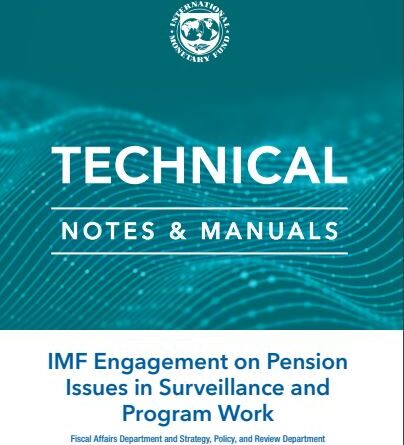IMF Engagement on Pension Issues in Surveillance and Program Work
By IMF
The International Monetary Fund (IMF) is increasingly involved in offering policy advice on public pension issues to member countries. Public pension spending is important from both fiscal and welfare perspectives. Pension policy and its reforms can have significant fiscal and distribution implications, can influence labor supply and labor demand decisions, and may impact consumption and savings behavior. This technical note provides guidance on assessing public pension systems’ macrocriticality, i.e., sustainability, adequacy, and efficiency; it also discusses the issues and policy trade-offs to be considered when designing responses aiming to address these dimensions of the pension system. The paper emphasizes the importance of taking a long-term, comprehensive perspective when evaluating public pension spending and providing policy advice. Where feasible, reforms should be gradual and transparent to allow individuals ample time to adjust their work and savings decisions and to facilitate consumption smoothing over their lifecycle to avoid poverty in old age. It is also important to ensure that pension systems’ design and reforms do not lead to undesirable impacts in other policy areas including general tax compliance, health insurance coverage, labor force participation among older workers, or labor market informality. The paper emphasizes the importance country-specific social and economic objectives and constraints, as well as political economy realities – factors that can determine whether a pension reform is a success or failure.
Get the book here
244 views










